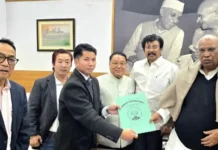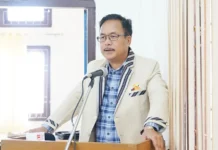NEW DELHI, 8 Mar: Marking International Women’s Day, the Indian Journalists Union (IJU) urged its affiliates and journalists across the country to ensure that pay audits are conducted in their newsrooms and that anomalies in gender pay gap are removed.
The IJU has also joined the International Federation of Journalists’ (IFJ) global campaign #PayMeEqual while marking the day and guaranteeing that both women and men should receive equal remuneration for work of equal value.
According to surveys, the global gender pay gap is estimated at 23 percent. This means that women earn on average 77 percent of what men earn. Journalism is no exception to that injustice. The gender pay gap is not linked to women being less qualified, but rather to their access to highly paid positions being limited.
“Obstacles to equal pay also include the lack of shared parenting responsibility and the fact that too few collective agreements have been adopted with solid provisions on reducing pay inequalities between women and men and balancing work and family life,” said the IFJ.
“This apart, women have been disproportionately affected by the current Covid-19 crisis, which is exacerbating the gender inequalities that existed before,” it said. “Many attempts to achieve equal pay, either through legislation or in negotiations have been frozen.”
In a statement, IJU president Geetartha Pathak and secretary-general Sabina Inderjit said that the fact that for many journalists’ unions the absence of gender disaggregated data and pay transparency in media are major barriers to bargaining to reduce pay inequalities, applies as well to India.
“This needs to be put right, and women journalists must get their rightful due. The unions, especially their gender councils, must take up the issue as top priority as the contract system if employment in the media has widened the gap,” they said.
The IFJ is launching a global survey together with Wageindicator to document the gender pay gap at a national level and support its affiliates in their call for equal pay. This survey, https://wageindicator.org/salary/salary-survey/salary-surveys-journalism, can also be used by individual journalists to compare their own wage to those in the profession holding similar positions.
Other measures to close the gender pay gap in journalism include the development of family-friendly workplaces, legislative change to improve pay transparency, for example, through company level pay audits, pay surveys, equality plans and income reports.
Globally too, few media companies provide for full transparency regarding pay and bonuses and it the task of the unions to hold them accountable and disclose wages to evaluate whether all media workers, irrespective of their gender, receive equal remuneration for work of equal value, the IJU said.
It said that “we all must take a cue from the landmark equal pay victory against the BBC by its presenter Samira Ahmed, and member of IFJ affiliate, the National Union of Journalists, in January 2020, wherein she was being paid six times less than her male counterpart. “A concerted campaign and a strong will,” said the IJU, “can help not only remove gender pay gap but will sharpen the focus on prevailing gender discrimination.”



